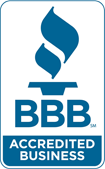
Legal Guidance for Montgomery Residents Pursuing Bankruptcy
It is important from the outset to propose a Chapter 13 debt repayment plan to which you can afford to pay. However, there are some life-changing events that may change a debtor’s ability to stick to a particular repayment plan, such as a medical emergency, job loss, or divorce. You will not be able to obtain a bankruptcy discharge under Chapter 13 if you do not make timely monthly payments according to the terms of your confirmed debt repayment plan, so it is important to schedule an appointment with your attorney in order to evaluate your options if a major event occurs during your Chapter 13 payment plan. A bankruptcy trustee can move to dismiss your Chapter 13 bankruptcy for non-payment. If the court grants this motion, you will lose the protection of your bankruptcy proceedings. The automatic stay will be lifted, you will not receive a discharge, and creditors can proceed with their collection efforts. To avoid this grim prospect, you should consult a bankruptcy attorney at Grainger Legal Services. We have assisted many Montgomery residents and others with pursuing a fresh financial start.
Trustee’s Motion to Dismiss Chapter 13 for Nonpayment
How should you respond to a trustee’s motion to dismiss your Chapter 13 case? If the trustee is correct that you have failed to make payments and you want to proceed with your case, you will need to catch up with any overdue payments.
You may be able to object to the motion and request a hearing on the grounds that the trustee is wrong about your nonpayment or show the situation was beyond your control but has now been corrected so that you have resumed your payments. Over the course of your bankruptcy, the trustee will send you accountings. It is important to keep those in case you need to submit them to the court and to keep proof of each plan payment and house payment you make during the plan.
Alternatively, you can try to renegotiate your debt repayment plan or request a hardship discharge under 11 U.S.C. § 1328(b) if circumstances have arisen that prevent you from completing the original plan. A hardship discharge is limited, and it is only available if the circumstances preventing you from completing the original plan are beyond your control, creditors received as much as they would under a Chapter 7 bankruptcy, and modification of the plan is impossible. Usually, the circumstances are illness or injury that preclude employment.
If you do not qualify for a hardship discharge, you may be able to renegotiate a different plan if your financial circumstances have changed so dramatically that you are unable to stick to the old plan, but you do not meet the requirements for a hardship discharge. For example, if you incur significant medical debt because you were in an accident or you incur new obligations such as child support or alimony payments, you may be able to get the court to confirm a new modified debt repayment plan. You will need to document whatever financial changes rendered you unable to stick to the original plan.
Another possibility might be to convert your case from a Chapter 13 case to a Chapter 7 case. Evaluating these options and their consequences is yet another reason to make sure you have an experienced bankruptcy attorney in your corner.
If you do not want to proceed with Chapter 13 bankruptcy, you can ask the court to dismiss the case. This is a good solution if you believe your financial circumstances have changed such that can repay your creditors without the time and protection provided by Chapter 13. You may need to spend time negotiating with secured creditors to restore the loans in effect before you filed for bankruptcy.
If the court grants the bankruptcy trustee’s motion to dismiss over your objection, you can file for Chapter 13 (or for Chapter 7 if you now qualify under the means test) again. This means you will need to attend credit counseling and prepare a new petition and plan based on your current economic circumstances. If you are refiling a case within a year of the court’s dismissal, your automatic stay will only last 30 days. This period can be extended by motion, but filing the motion can be risky, and you will need to show good faith—a sound reason why you did not complete the first debt repayment plan and why the second time is different.
Seek the Advice of an Alabama Attorney When Reorganizing Your Finances
If an Alabama trustee files a motion to dismiss in your Chapter 13 case, you should consult a bankruptcy lawyer for advice on the possible consequences of your decision to oppose a trustee’s motion or refile for bankruptcy. Grainger Legal Services can help our clients oppose a motion to dismiss or refile for bankruptcy from our offices in Montgomery, Troy, and Prattville. Call us at (334) 260-0500 or contact us online to schedule a free consultation.


 Attorney Charles Grainger possesses decades of legal experience focused on debtor-creditor law, bankruptcy, and business law. His legal work is designed to help clients overcome debt and secure a stronger financial footing. He also provides legal services to entrepreneurs and business owners. Grainger Legal Services takes a comprehensive approach to debt relief and financial education for clients in south-central Alabama. [
Attorney Charles Grainger possesses decades of legal experience focused on debtor-creditor law, bankruptcy, and business law. His legal work is designed to help clients overcome debt and secure a stronger financial footing. He also provides legal services to entrepreneurs and business owners. Grainger Legal Services takes a comprehensive approach to debt relief and financial education for clients in south-central Alabama. [ 


